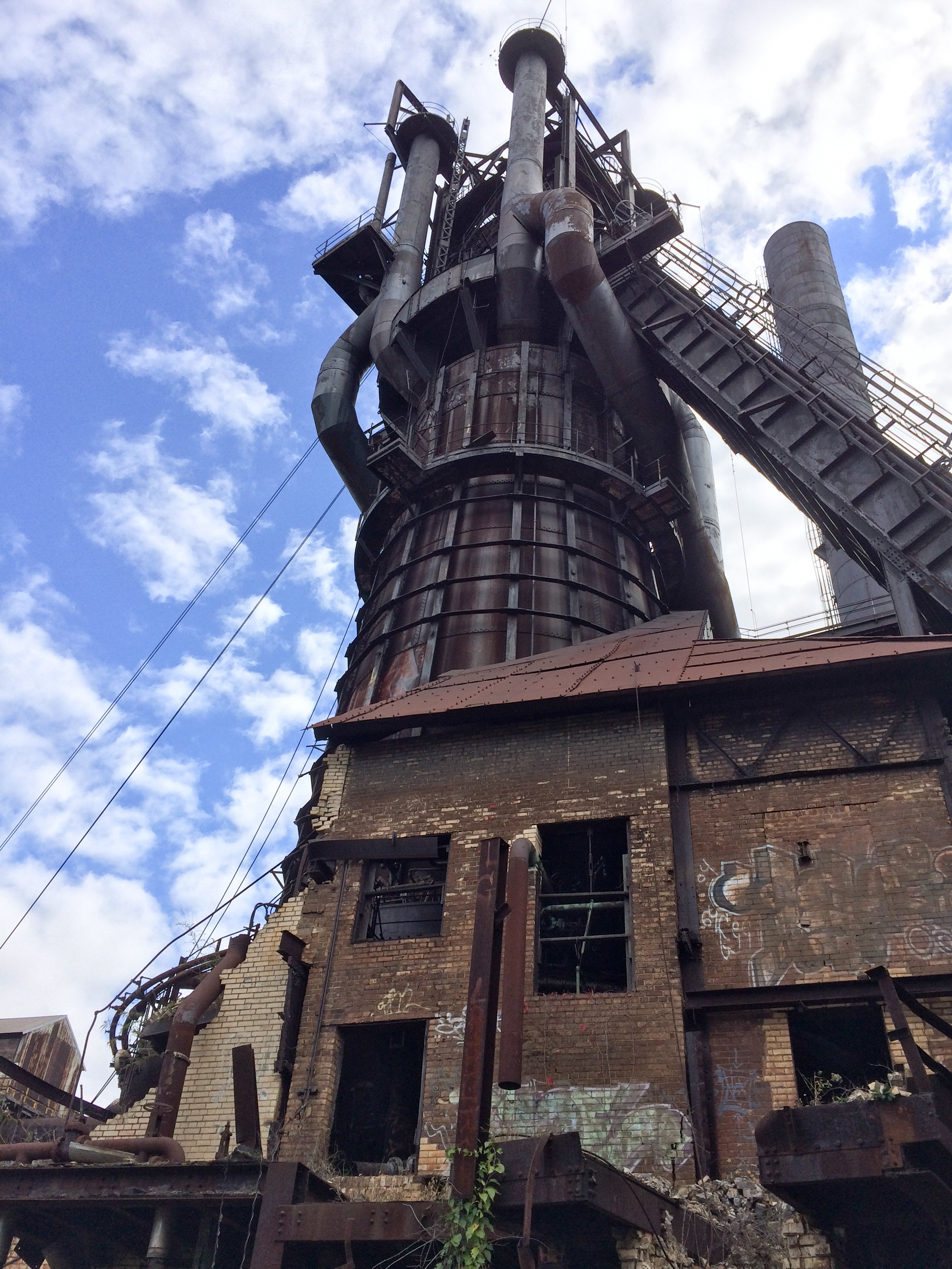Film Industry, Innovation to Bring Carrie Furnace Site Back to Life
By The Regional Industrial Development Corporation
 Dating back to the 1880s and part of Andrew Carnegie’s US Steel for the better part of a century, the Carrie blast furnaces once produced 1,000 tons of iron a day. Now, with the remains of two of those furnaces still standing as a reminder of the region’s history, the Carrie Furnace site is poised for a new future as an economic engine for the region and center of jobs for the community.
Dating back to the 1880s and part of Andrew Carnegie’s US Steel for the better part of a century, the Carrie blast furnaces once produced 1,000 tons of iron a day. Now, with the remains of two of those furnaces still standing as a reminder of the region’s history, the Carrie Furnace site is poised for a new future as an economic engine for the region and center of jobs for the community.
With the Regional Industrial Development Corporation of Southwestern Pennsylvania (RIDC) having taken control of the site – and working in partnership with the Pittsburgh Film Office – plans are advancing to construct the region’s first purpose-built film studio, to increase the presence of an industry that has already generated thousands of jobs and billions of dollars in tax revenue over the past decade.
“With Carrie Furnace,” said RIDC President Donald F. Smith, Jr., “we have the opportunity to create a new landmark for the region and the community. The film studio and other buildings on the site will bring energy, jobs and economic benefits to a location that has been idle for a very long time – benefits that will be felt across the region.”
The film studio will be adjacent to a new 60,000-square-foot tech-flex building that RIDC has constructed on the site, along with new infrastructure, roads and parking – where two years ago, there was nothing but an empty field. A second tech-flex building is also planned and, in its entirety, the site includes more than 40 buildable acres, which can be divided to create as much as 500,000 – 600,000 square feet of additional development.
Also, using $9.2 million in federal stimulus funds, Allegheny County plans to create a riverside pedestrian and bike trail along the Monongahela River and connect the Carrie Furnace Hot Metal Bridge to the Great Allegheny Passage, as well as to the Westmoreland Heritage Trail via the Turtle Creek Valley.
This is in addition to significant state funding, under the administrations of Governor Shapiro and former Governor Wolf, the most recent being $2 million to support infrastructure development for the property.
The phased development will have portions for various commercial uses – with film production related businesses expected to become part of an eco-system that includes technology, R&D, life sciences, workforce education and training, light manufacturing and assembly, and other similar uses. It’s expected that innovative businesses developing new technologies with applications for the film industry would be among the likely occupants.
The redevelopment and revitalization of the Carrie Furnace site is the latest chapter in a 35-year commitment by RIDC to former industrial properties in the Mon Valley, beginning with its acquisition of the former Westinghouse campus in Turtle Creek – now Keystone Commons – and including Mill 19 at Hazelwood Green, the Pittsburgh Technology Center, City Center Duquesne and Industrial Center of McKeesport. These properties are once again centers of economic activity and homes to successful job-creating businesses.
All told, RIDC, which is a private, nonprofit economic development organization that self-funds its operations, owns and manages nearly 8 million square feet of property at 15 locations around the region – and is adding to that total with each new project.
“Bringing new life to these large old industrial sites requires patience and partnerships,” said RIDC Senior Vice President Timothy White. “In this case, resources from the federal, state and county governments enabled us to move forward and make tangible progress – as have our relationship with Rivers of Steel, which continues to manage the remaining furnaces as tourist attractions, and so many community groups. Today, a 60,000-square-foot building, roads, streets, parking and infrastructure are all a reality, with a film studio, additional construction – and most importantly, new jobs – on the horizon.”